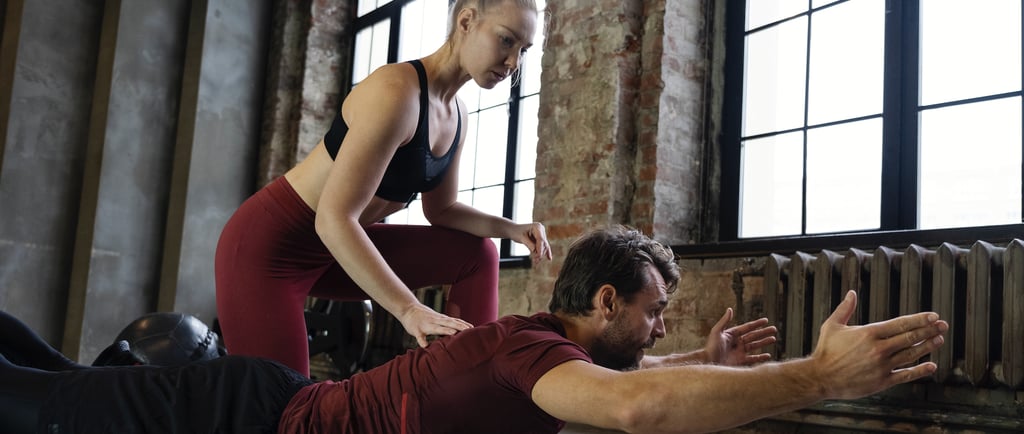Pilates for Recovery: How It Benefits Those with Injuries or Illnesses
Learn about how Pilates can help with recovery. (Photo Credit: Freepik.com)
PILATES FOR WELLNESSPILATES FOR INJURIES AND SPECIAL POPULATIONS
Corie Kellman
6/30/20252 min read


Photo Credit: Freepik.com
Pilates is widely recognized for its ability to improve strength, flexibility, and overall body awareness. However, one of its most powerful benefits is its effectiveness in injury rehabilitation and managing chronic illnesses. With its low-impact movements and focus on controlled exercises, Pilates can be a safe and effective way for individuals recovering from injuries or dealing with health conditions to regain strength and mobility.
Why Pilates is Ideal for Recovery
Unlike high-impact workouts that can put stress on the body, Pilates emphasizes controlled movements, making it an excellent choice for those with physical limitations. Here’s why Pilates is especially beneficial:
✅ Low-Impact and Joint-Friendly – Pilates avoids jarring movements, reducing strain on joints and muscles while still building strength.
✅ Focus on Core Strength – A strong core helps support the spine, reducing back pain and improving posture.
✅ Improves Flexibility and Mobility – Pilates lengthens and strengthens muscles, improving overall range of motion.
✅ Enhances Body Awareness – Helps individuals recognize movement patterns that may contribute to pain or discomfort.
✅ Customizable for All Levels – Exercises can be modified to accommodate various injuries and health conditions.
Common Injuries and Conditions That Benefit from Pilates
Back and Spinal Issues – Pilates strengthens the deep core muscles, which support the spine and alleviate chronic back pain. Be sure to tell your instructor about your injury–especially if you have any bulging or herniated discs or doctors restrictions. They can provide modifications to ensure you don’t put emphasis on movements that could aggravate your injuries.
Joint Pain, Arthritis, and Osteoporosis – The controlled movements under moderate tension in Pilates reduce stress on the joints while improving mobility and strength.
Post-Surgery – Pilates helps individuals rebuild strength and mobility in a gradual, safe manner. Pilates is not a substitute for physical therapy. Pilates is an amazing choice to return to exercise after surgery, but it is not a medically monitored rehabilitation. Many physical therapists do recommend and refer their patients to Pilates in addition to or post PT.
Chronic Illnesses (e.g., Fibromyalgia, Multiple Sclerosis) – Pilates can improve energy levels, circulation, and overall well-being without overexertion. Be sure to choose an appropriate level or paced class if you choose to do group fitness over private training.
Sports Injuries – Pilates helps athletes recover by improving muscular balance, dexterity and balance to prevent re-injury.
How to Get Started Safely
If you’re recovering from an injury or managing a chronic illness, consider these steps before starting Pilates:
Consult with a Healthcare Professional – Get clearance from your doctor or physical therapist.
Work with a Certified Pilates Instructor – A trained instructor can modify exercises based on your needs.
Start with Gentle, Beginner-Friendly Classes – Choose a private lesson or introductory class and consult with your teacher to understand your baseline.
Listen to Your Body – Move at your own pace and stop if you experience discomfort. Let your instructor know if something is painful and they can provide you with a modification that allows you to continue to exercise without sitting a section of your workout out.
Ultimately, Pilates is a great way for individuals of all abilities get exercise in. It should be noted that Pilates is not a substitute for medical care and Pilates instructors, while trained to guide those with special needs, are not medical professionals or Physical therapists and cannot diagnose or treat any conditions. Whenever you are under the guidance of a Pilates instructor, you are still exercising at your own risk and need to ensure that your doctor has provided you clearance and you disclose anything relevant to your instructor so that they can develop an exercise program that is safe and effective for you.
CONTACT US
© GRADUATE PILATES, LLC. 2025.
All rights reserved.
